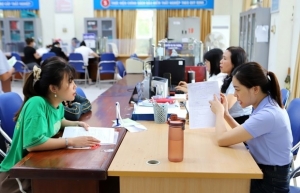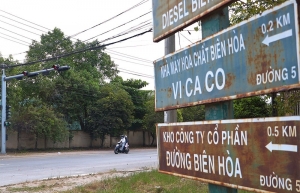INTERNATIONAL INVESTMENT
AND PORTAL
After receiving a proposal from the Vietnam General Confederation of Labour (VGCL), a report was sent to the government in mid-April by the Ministry of Labour, Invalids and Social Affairs (MoLISA) regarding its recommendations focusing on reducing working hours.
The MoLISA reported that the policy could impact socioeconomic growth. Accordingly, the ministry has promised to conduct thorough studies to ensure the feasibility of such a policy change, during the process of amending and supplementing the Labour Code.
In early April, the VGCL sent its proposal to adjust normal working hours to 40 hours per week, issued in the context of celebrating Worker’s Month in May. During May, trade unions will organise dialogues and forums between workers and businesses, and activities to honour workers, strengthen trade union organisations, and encourage trade union members to join the Communist Party of Vietnam.
According to the VGCL, Vietnam is one of the countries with the highest official working hours in the world, and the difference in working hours between white-collar and blue-collar workers is unfair. Therefore, the confederation proposed reducing working hours so that workers have easier conditions to rest and recuperate.
Le Dinh Quang, deputy head of the VGCL’s Policy and Law Department, said, “Vietnam’s society has made certain achievements, but workers need to benefit, and we need a roadmap for that. Of course, working hours will be reduced, but working conditions must not be reduced.”
 Some workers would prefer increased hours while it is optimal for others to have salary raised instead, Photo: Shutterstock
Some workers would prefer increased hours while it is optimal for others to have salary raised instead, Photo: Shutterstock
Although a 40-hour working week came into effect in 1999, the regulation is still only implemented in the public sector. Currently, employees working at state agencies have a full day off on Saturday and Sunday. Meanwhile, most businesses still work on Saturdays.
The proposal to reduce working hours is supported by the majority of hourly-paid workers, but those who are paid per product want to increase their salaries rather than reduce their working hours.
“I want to increase my hours to have more income. My job is based on piece work, and if I work five days per week, it’s not enough to ensure a living,” said Ly Hoang, a worker at a garment business in the northern province of Bac Ninh.
“Currently, workers here are working 48 hours per week and six days per week according to the provisions of the Labour Code. If working hours are reduced to 40 hours per week, workers’ incomes will be greatly affected, making it more difficult to ensure a living.”
Nguyen Xuan Duong, vice chairman of the Vietnam Textile and Garment Association, said, “A 40-hour work week is not enough for us to pay our workers.”
According to International Labour Organization data from January, the average working time of Vietnamese workers is 41.6 hours/week, including both state agencies and businesses. However, the proportion of workers working 49 hours per week or more is 25 per cent.
To put the proposals into practice, conditions must be gradually prepared such as improving labour productivity, and raising the level of wages and labour income.
“Vietnam cannot yet apply the form of working less than 48 hours per week. Workers also want more overtime, but if we reduce official working hours, it will not be suitable in the current conditions and not meet the wishes of the majority of workers as well as employers in the current context,” said Hoang Quang Phong, vice president of the Vietnam Chamber of Commerce and Industry.
Dinh Sy Phuc, head of the union of TKG TaeKwang Vina Co., Ltd in the southern province of Dong Nai, said, “It is not the first time that this proposal has been discussed. If it is approved, the company will comply with the regulations. However, in my opinion, there is no plan to optimise for all parties. The key importance is the businesses’ health and the labour productivity of workers.”
If labour productivity is high, the reduction in working time will not impact incomes, and at the same time workers will have more time for themselves to take care of their families, Phuc added. “In addition, if the orders of businesses are always full, in collaboration with high productivity, payment for workers will be high.”
 A further 125,000 workers to go abroad in 2024
A further 125,000 workers to go abroad in 2024
The Ministry of Labour, Invalids and Social Affairs (MoLISA) predicts that there will be more job opportunities for Vietnamese workers in markets such as Japan, Taiwan, and South Korea this year, with as many as 125,000 contracted workers expected to make the move.
 Vietnam sends over 35,900 workers abroad in Q1
Vietnam sends over 35,900 workers abroad in Q1
Vietnam sent more than 35,900 labourers to work abroad under contracts in the first quarter of 2024, according to the Department of Overseas Labour under the Ministry of Labour, Invalids and Social Affairs (MoLISA).
 Uncertain future for Bien Hoa IP’s workers and businesses
Uncertain future for Bien Hoa IP’s workers and businesses
Now that a more concrete plan is in the works for relocating companies out of the country’s oldest industrial park, those affected are desperate for guidelines in order to limit operational impacts.



















